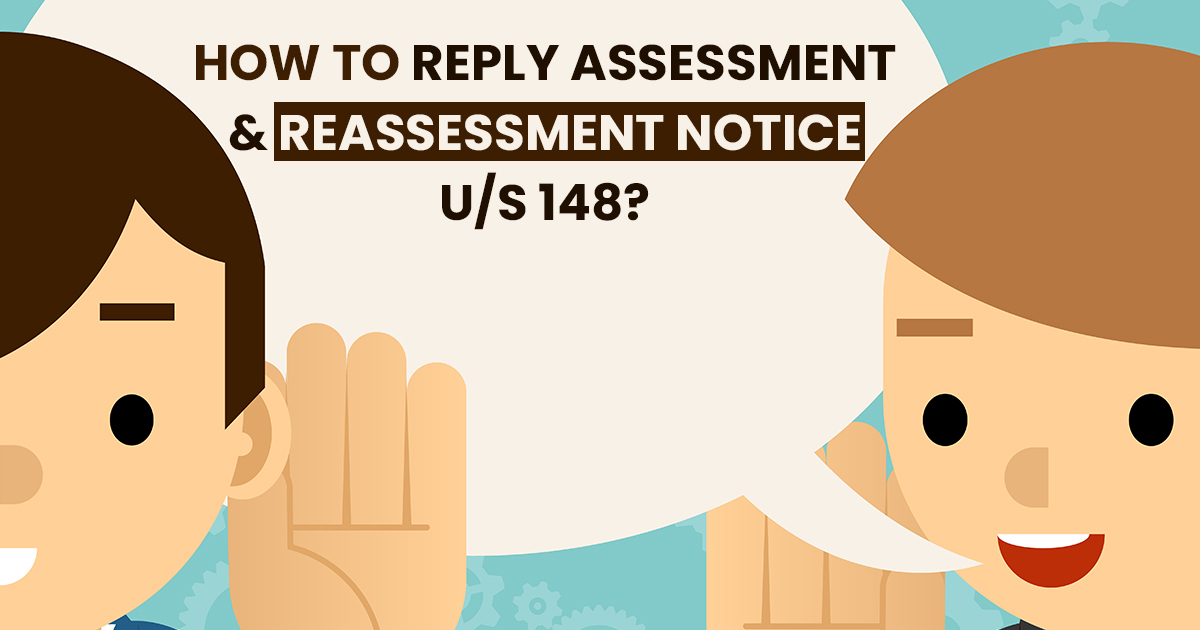
Under section 147 of the Income Tax Department, The Income Tax Department is empowered to reassess an individual’s previous/privately filed income tax returns. The assessing officer possesses the power to pick the income tax return for the reassessment keeping in consideration some predefined criteria by sending the notice under section 148 for the purpose of income escaping assessment.
What Exactly is Section 148 of the IT Act?
As per section 148 of the Income Tax Act 1961, any computation of income tax within the domain of not being recomputed or reassessed shall get a notice from the Income Tax Department. Adding further, this section also mentions that an assessing officer shall get in contact with the assessing officer.
Basically, section 148 of the Income Tax Act manages the issue of a notice wherein any income has not been recomputed or assessed. As per this section, the Assessing officer shall inform the assessee in question by giving him or her a notice in which he or she shall have to compulsorily provide the details of the income tax returns, the income tax returns of a person excepting the assessee in the question who is assumed/considered to be accessible as per the provisions of the aforesaid act during the year that is prior to the assessment year of the relevance.
Reasons Attributable to Receive Notice Under Section 148
- Before the issue of a notice to an assessee that is based on the provisions as per section 148, an assessing officer ought to possess concrete/firm evidence that the assessee in consideration has evaded the assessment of income for the concerned assessment year
- In other words, the assessing officer could not issue the notice to an assessee merely on the basis of suspicion
- There should be a solid link between the material or information that has been laid before the assessing officer along with the explanation and justification to have a belief that the assessee escaped from the income assessment during a particular assessment year
- The information that is supplied to the assessing officer must not have superficial facts and figures and should be of the utmost relevance to the case
- And before the issuance of notice to the assessee as per section 148, the assessing officer shall be compulsorily required to write record and thereafter provideth reason in written format declaring why he or she has the conviction that the assessee has been escaping the assessment from the income. Simply making the statement about tax evasion without any linkage to facts and figures done by a particular individual is not enough. And such reasons shall be termed as ambiguous and vague
- The decision to issue notice cannot be made on the old information. Issue of the notice could only take place if the new information or the material that has been presented to the assessing officer
- Lastly and importantly, in the past, if any information has been concealed by the assessee in past and that comes to the knowledge of the Assessing officer then the assessing officer has the right to issue a notice
Read Also: All About Income Tax Scrutiny Notice & How to Respond Quickly?
Steps to be Followed by the Assessee to Revert to the Notice as per Section 148
In the case of GKN Driveshafts India Limited versus ITO (2003) 259 ITR 19 held in the honourable Supreme Court of India, the honourable court framed the entire procedure that has to be followed after the issuance of the notice as per section 148. The apex court laid down 5 steps for the issuance of the notice:
- First up, after issuance of the notice, the assessee in return may file a fresh return declaring his/her true income. The income might be the same or different from the ITR declared in the first instance.
- Secondly, the assessee might write in response to the assessing officer that the returns that have been already filed in compliance as per section 139(1) might be treated as an ITR that is filed in compliance with the notice under section 148.
- In the third step, the assessee should necessarily ask for the supply of reasons for issuing notice as per section 148. However, if the copy of the reasons has not been provided to the assessee, the entire assessment proceedings could be quashed as per the decision held by the honourable Delhi HC in the case of CIT v. Jagat Talkies Distributors [2017].
- In the fourth step, the assessee shall file the objections to the issue of the notice, and the assessing officer is bound to dispose of the same by speaking the order which was held by the honourable Gujarat High Court in Simaben Vinodrai Ravani v. ITO [2017].
- Further, in the last step, if the objections have not been accepted by the assessing officer, he shall not proceed further for a time span of four weeks so that assessee can have sufficient time to take the remedial actions for challenging the order of the rejection as held by the honourable Bombay High Court in the case of HDFC Ltd v. CIT [2007]
If the assessing officer does not dispose of the objections by speaking the order and afterwards start assessment proceedings then the assessee has the right to file an application as per section 144 A before the Additional/Joint Commissioner. However, if the aforesaid application is rejected then the assessee might file a writ in the High Court of Judicature.
Lastly and Importantly, the assessee might assist in the assessment proceedings along with a note of the dissent and may appeal the issue before the Commission (Appeals) against the order of the assessment. The Commissioner (Appeals) might be requested to decide the matter of the validity of the assessment first held by the Delhi High Court in Makhan Singh Gurucharan Singh (HUF) v. CIT [2002].